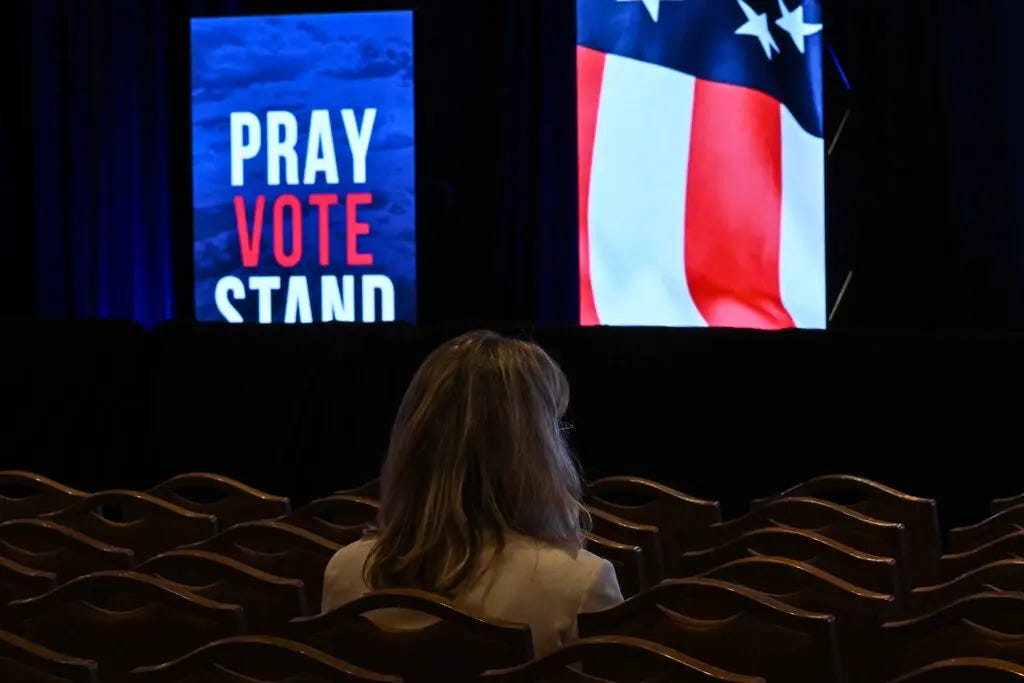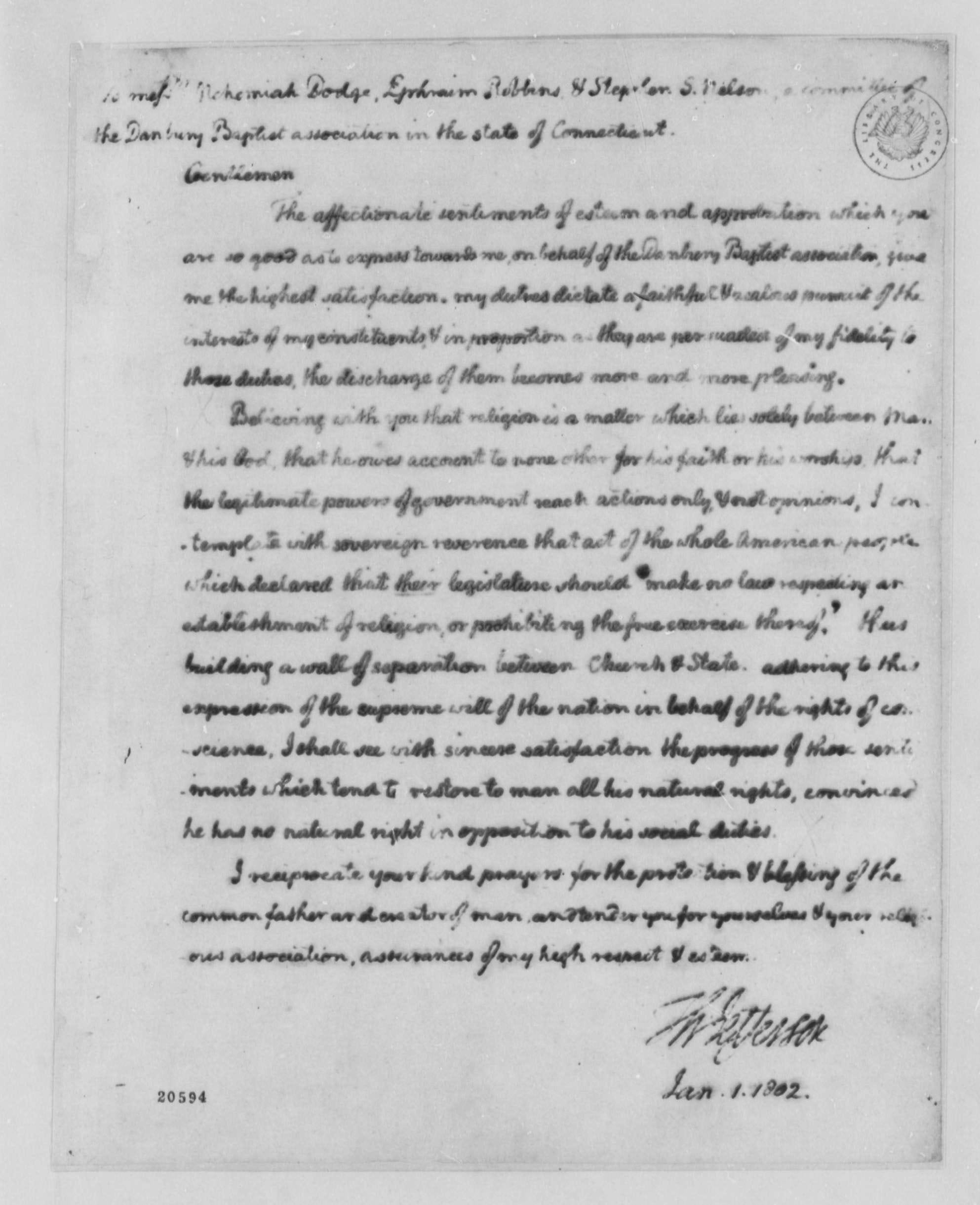I.R.S. Says Churches Can Endorse Candidates From the Pulpit
In a court filing, the tax agency said a decades-old ban on campaigning by tax-exempt groups should not apply to houses of worship speaking
Our Note:
The advocates for the separation of church and state cannot and will not find anything of the sort in our Declaration of Independence, as well as our Constitution.
That phrase, separation of church and state, originally came from a letter Thomas Jefferson penned to a group of Bishops who were concerned that the new nation would revert to what everyone fled from in England, where church and state were one.
King Henry VIII initiated the separation of the Church in England from the Roman Catholic Church in 1534, leading to the establishment of the Church of England during the 16th-century English Reformation
The Danbury Bishops were concerned that our country would head in the same direction, and thus started a correspondence with Thomas Jefferson.
Jefferson wrote that the legislature will not make any law concerning the establishment of any religion (such as what occurred in England) and that such prohibition would keep the state and church separated - there is no mention of keeping government out of the church nor the church out of the government.
Jefferson’s letter is embedded below…
via By David A. Fahrenthold, NYTimes (excerpt)
The I.R.S. said on Monday that churches and other houses of worship can endorse political candidates to their congregations, carving out an exemption in a decades-old ban on political activity by tax-exempt nonprofits.
The agency made that statement in a court filing intended to settle a lawsuit filed by two Texas churches and an association of Christian broadcasters.
The plaintiffs who sued the I.R.S. had previously asked a federal court in Texas to create an even broader exemption - to rule that all nonprofits, religious and secular, were free to endorse candidates to their members.
That would have erased a bedrock idea of American nonprofit law: that tax-exempt groups cannot be used as tools of any campaign.
Instead, the I.R.S. agreed to a narrower carveout …
Thomas Jefferson’s Letter to the Danbury Bishops
We have enlarged the copy of his original letter for easier reading. A typed copy of both the Bishops’ and Jefferson’s correspondence is available by clicking the button just below (opens in a downloadable PDF from our online library).
From the 2nd paragraph of Jefferson’s reply…
“Believing with you that religion is a matter which lies solely between Man & his God, that he owes account to none other for his faith or his worship, that the legitimate powers of government reach actions only, & not opinions, I contemplate with sovereign reverence that act of the whole American people which declared that their legislature should ‘make no law respecting an establishment of religion, or prohibiting the free exercise thereof,’ thus building a wall of separation between Church & State.“




